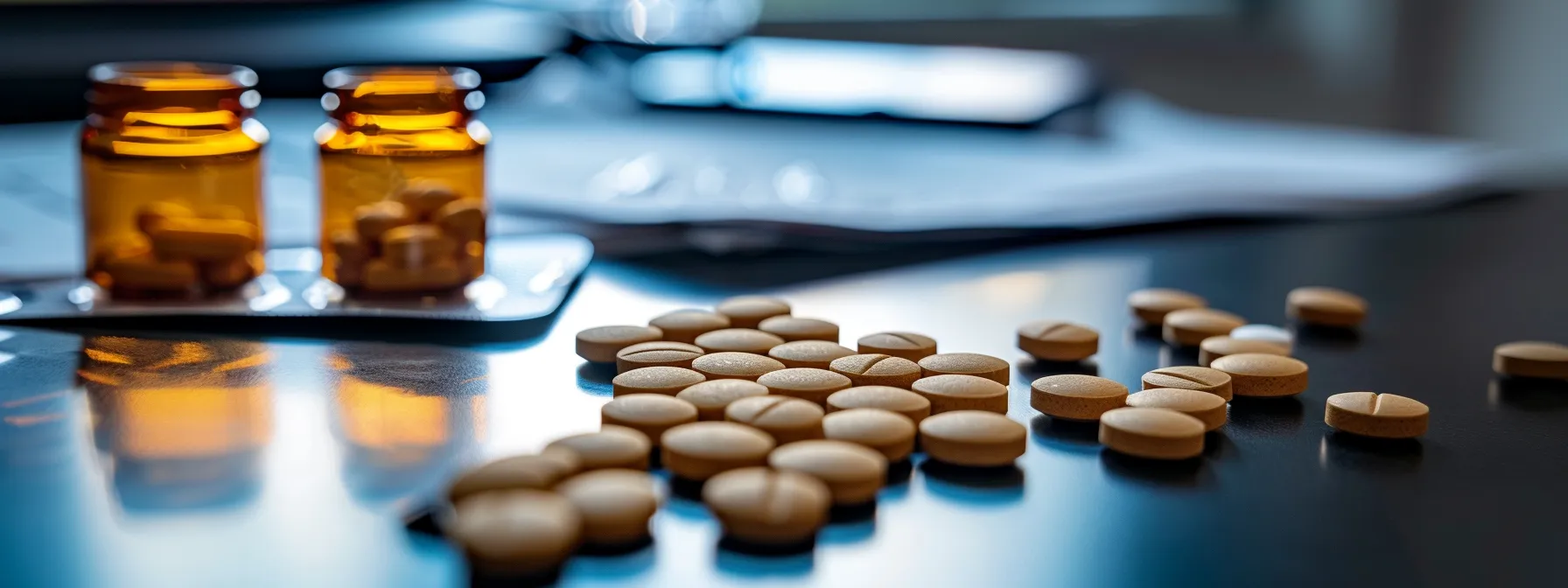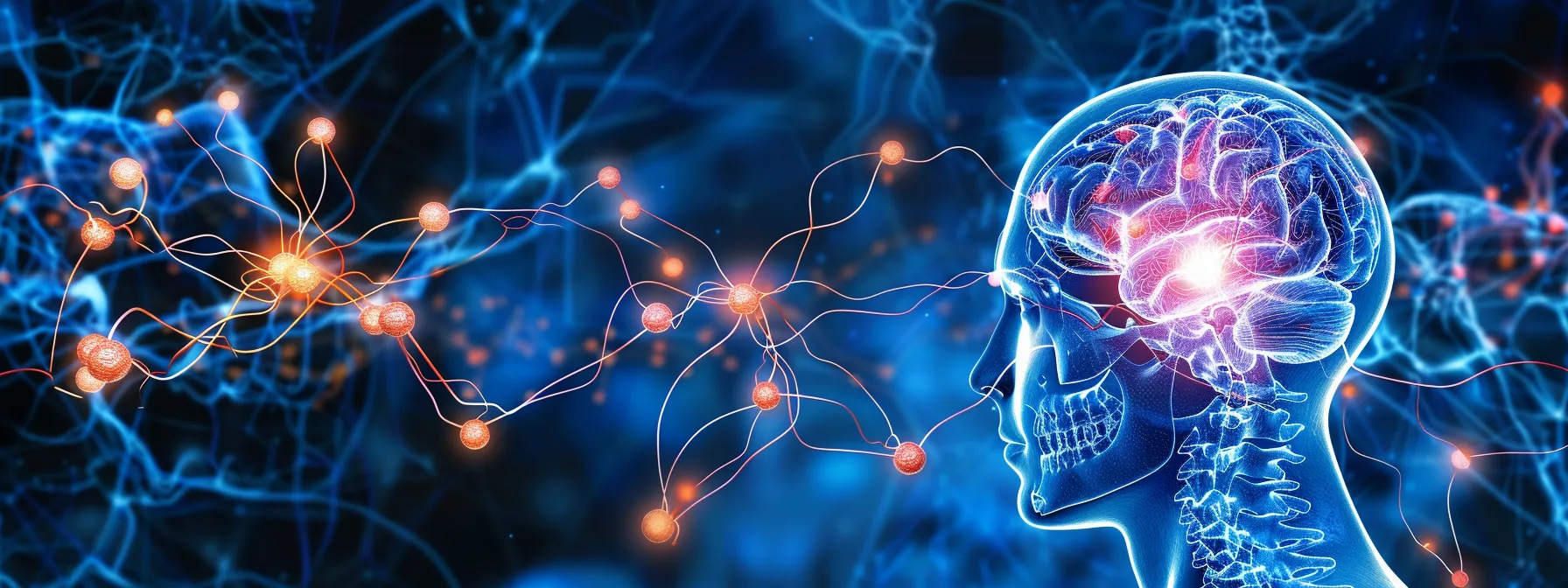THC pills are not just another way to consume cannabis—they offer a different experience compared to common methods. The article explains what THC tablets are, details how THC capsules work, and covers safety measures essential for adult consumers. Readers will learn how THC pills benefit controlled dosing and discreet use while addressing common concerns about cannabis consumption.
Key Takeaways
- THC pills provide controlled, consistent relief for users
- They work by gradually releasing their active compound into the bloodstream
- Research verifies the effectiveness of targeted cell-level interaction for symptom management
- Different THC forms offer varied benefits, especially compared to edibles and tinctures
- Controlled dosing is vital, particularly for beginners managing their intake safely
Overview of THC Pills and Their Mechanism of Action

THC pills are a form of oral cannabinoid administration that allows compounds to be released steadily over time, serving as a controlled therapy option. They offer alternative dosing and consistent effects for users seeking regulated relief. For more information, refer to the bestmarijuanaguide or explore the best THC pills available.
These pills work by interacting with specific receptors found within the body, ensuring that the active compound binds effectively to every target cell and contributes to the regulation of symptoms such as nausea and discomfort associated with hepatitis c:
| Aspect | Details |
|---|---|
| Cell Interaction | THC binds to receptors on target cell membranes |
| Hepatitis C | Consideration given to risks related to liver function |
| Nausea | Effective reduction through consistent compound release |
| Data | Clinical studies validate the pharmacokinetic profile |
| Therapy | Serves as adjunct treatment in various management plans |
THC pills operate on a mechanism that targets the receptor sites on each cell, ensuring that the active ingredient is dispersed uniformly in the bloodstream. This approach leverages data from clinical trials to fine-tune dosing methods that aim for reduced nausea during therapy sessions.
Research on the mechanism behind these pills supports their use in therapy, particularly when balancing the needs of patients with conditions such as hepatitis c. Reliable data confirm that the steady release and cell-level interactions contribute to an effective treatment strategy for managing nausea.
What Are THC Tablets?
THC tablets are an alternative form of oral cannabinoid administration that provide consistent dosing and steady symptom management. They work effectively by releasing the active compound slowly, similar to other controlled medical programs available on the internet.
The tablets use an extract method that allows the compound to interact with specific receptors, gradually diffusing into the bloodstream. This mechanism supports targeted relief for conditions affecting overall lung function and breathing difficulties.
Clinical research confirms the tablets support cell-level interactions that reduce symptoms over time. Their design aligns with modern programs that distribute health information over the internet, fostering better treatment methods.
THC tablets integrate a simple yet effective approach to therapy by ensuring the extract maintains a consistent concentration in the body. The process supports improved breathing and lung health, and facilitates data-driven improvements in cannabinoid programs.
How THC Capsules Work

THC capsules incorporate a measured composition in softgel form that supports controlled absorption. The process assists in regulating appetite and addresses concerns related to schizophrenia and depressant effects while contrasting with sublingual administration. This overview connects digestion and absorption insights with practical strategies for effective symptom management.
Understanding the Composition of THC Capsules
The composition of THC capsules is engineered for precise absorption, enhancing targeted relief for symptoms like fatigue. The formulation offers a steady release, which Minnesota users may favor when they seek an alternative to traditional methods such as smoke and drink, as the capsules may also support memory retention during controlled therapy.
Research shows that the softgel design promotes effective integration of active compounds with receptor targets, thereby reducing overall fatigue. The consistent formulation achieves a balanced presence in the bloodstream, providing a practical solution for consumers concerned about memory and other treatment parameters.
The Process of Digestion and Absorption
The digestive process for THC capsules begins in the stomach, where the softgel is broken down to release cannabinoids that pass into the small intestine, allowing the compound to interact with the bloodstream and target receptors. Physicians note that the careful formulation of these capsules supports regulated absorption, contributing to a balanced impact on muscle relaxation, liver function, and blood pressure management.
Once the active compounds enter the blood, they are distributed throughout the body, including areas such as the breast milk in lactating individuals. This steady absorption rate assists in minimizing rapid fluctuations in compound concentration, which physicians find beneficial for overseeing treatment effects and ensuring overall wellness.
Effects of THC Pills

The review examines short-term body reactions, long-term outcomes, and various factors that influence THC effects. It covers how THC impacts the blood vessel, promotes relaxation, and affects nerve interactions, sleep patterns, and even fetal health. This overview connects these topics, offering practical insights into the medication's immediate and lasting impacts.
Short-Term Effects on the Body
The short-term effects of THC pills provide users with measurable relief from pain while altering concentration levels in a predictable manner. Medical professionals note that these tablets help stabilize mood and may lower the risk of hypertension when used under appropriate therapeutic supervision.
Initial exposure to these formulations often leads to a moderate impact on physiological functions without significant side effects, although rare cases of stillbirth necessitate careful patient screening. Clinical observations reveal that early-phase responses include an improvement in pain management alongside subtle shifts in mood, guiding practitioners in fine-tuning dosage regimens for optimal results.
Long-Term Effects and Considerations
Long-term use of THC pills may affect factors such as weight management and vitamin absorption, as well as the interplay with the central nervous system. Clinical observations in illinois indicate that patients who are breastfeeding require careful monitoring to avoid potential complications:
- Monitoring weight changes over time
- Assessing vitamin levels and nutritional balance
- Observing central nervous system responses
- Evaluating effects in breastfeeding individuals
Long-term treatment plans using THC pills demand consistent evaluation of dosage and treatment outcomes. Expert opinions emphasize regular assessments to ensure that benefits outweigh any risks, particularly for individuals affected by weight fluctuations and vitamin absorption issues while maintaining central nervous system stability.
Factors Influencing THC Effects
THC effects are influenced by several factors that can impact the experience and therapeutic outcomes. The water content in the system, absorption through the tongue, and individual metabolic rates often play a role, as shown by clinical trial data. Insurance coverage for cannabinoid therapy may affect patient access to sedative formulations and related products.
Patient-specific factors such as age, body composition, and previous exposure to cannabinoids alter the effectiveness of THC pills, making personalized dosing essential:
- Water intake levels
- Method of administration including sublingual exposure
- Insurance eligibility for therapeutic coverage
- Prescribed sedative options based on needs
- Findings from clinical trial observations
These factors assist medical professionals in adjusting treatment plans to achieve the desired outcomes.
Differences Between THC Pills and Other Consumption Methods

The article contrasts THC pills with smoking and edibles, exploring behavior differences, microdosing benefits, and potential applications such as nabilone use and bipolar disorder management. This section provides essential information to guide consumers through varying consumption methods and their unique impacts, ensuring a comprehensive review of each option.
THC Pills Compared to Smoking
THC pills present a consistent dosing profile, reducing occurrences of side effects such as paranoia and headache compared to smoking. Medical observations indicate that pills help maintain stable compound levels, which may lower risks of complications like low birth weight and stomach discomfort.
Clinical findings suggest that the controlled absorption of THC pills offers a methodical alternative to smoking, particularly for patients concerned about hepatitis and related health issues. This approach provides a predictable release of active compounds, ensuring fewer acute side effects and a more balanced overall experience.
THC Pills Versus Edibles
THC pills and edibles differ in how they deliver cannabinoids to the body; pills offer a measured dose in a consistent format while edibles often present variable sugar content and infusion in a gelatin base. These differences become significant for consumers in varying jurisdiction, especially when alcohol consumption may occur alongside medicinal products:
| Aspect | THC Pills | Edibles |
|---|---|---|
| Dose Consistency | Precise dose | Variable dose |
| Formulation | Gelatin-based softgel | Sugar-infused snacks |
| Usage Context | Controlled administration | Recreational settings, sometimes with alcohol |
THC pills rely on controlled absorption to deliver a predictable concentration of active compounds, which supports reliable therapy protocols compared to edibles. Their formulation helps manage dose accuracy, an important factor in settings where jurisdictional regulations and usage with alcohol require careful oversight.
The Science Behind THC's Interaction With the Endocannabinoid System

The interaction of THC with the endocannabinoid system supports its effectiveness as a medication by targeting receptor sites throughout the body. Clinical data demonstrate the benefits of this interaction, including improvements in overall health for each patient.
Researchers note that THC's receptor binding may help reduce tachycardia in patients with regulated dosing patterns. This discovery reinforces its use as a controlled therapy option.
The steady release of active compounds assists patients in managing shortness of breath and other respiratory issues. By engaging with the endocannabinoid system, the medication contributes to improved patient comfort.
Studies indicate that THC-based formulations enhance cell-level interactions, supporting balanced health management. The science behind these interactions provides insight into the controlled absorption that benefits each patient.
Safety and Precautions When Using THC Pills

Medical experts assess THC pills by evaluating potential side effects such as seizure and bleeding risks while emphasizing dosage guidelines for beginners. The cannabinoid's taste and consistency across each brand are reviewed to balance desired therapeutic outcomes against any adverse reactions. This section offers practical insights into managing risks and proper intake for effective use.
Side Effects and Risks
The tablet formulation of THC pills may sometimes lead to side effects if not managed appropriately, with research highlighting the risks associated with overconsumption. The steady release of the gel-based compound aids digestion and minimizes abrupt dosage spikes, although users should remain cautious to avoid excessive intake which might disrupt normal metabolic processes.
Clinical research underscores that careful dose control is pivotal for safe use, as even slight miscalculations can lead to mild adverse reactions. Medical experts advise monitoring digestion and absorption to prevent overconsumption, ensuring that the gel consistency does not compromise the regulated therapeutic effects observed in well-designed THC tablet formulations.
Dosage Guidelines for Beginners
For beginners, a careful approach to THC dosage is recommended, ensuring that users start with small amounts to monitor how fat-based compounds interact with blood levels. Medical professionals advocate for a gradual increase in dosage while noting that the terpene profile in the formulation supports effective pain management, prompting users to track their response and share feedback via their email address if needed.
New users are advised to follow precise instructions when measuring their THC intake, paying close attention to the balance of fat and blood absorption rates for optimal benefits. Experts assert that consistent monitoring helps adjust the dosage safely, and they suggest that patients submit inquiries through their email address to obtain detailed guidance along with timely updates on improvements in pain management outcomes.
FAQs About THC Pills and Their Effects

The FAQ addresses THC pills and their absorption by the body, focusing on how active compounds are taken up during digestion. A systematic review confirms the consistent release of metabolites over time.
The discussion highlights that THC tincture is an alternative form of administration compared to pills, though both enter the bloodstream via the mouth. Experts note similar absorption patterns and targeted metabolic processes.
Experts explain that THC pills support predictable metabolism, providing controlled intake and steady relief. A systematic review backs the claims with data on the absorption rate of these formulations.
The FAQ emphasizes that the interaction of THC pills starts in the mouth and continues through the metabolic system. Clinical findings underline how absorption resembles that of a well-prepared tincture, ensuring reliable outcomes.
Frequently Asked Questions
What exactly are THC pills?
THC pills contain measured amounts of tetrahydrocannabinol, designed for consistent, controlled consumption. They provide adult cannabis consumers a discreet method to experience cannabis’s effects while adhering to product guidelines found on trusted review platforms.
How do THC capsules work?
THC capsules contain measured THC doses that interact with the body's endocannabinoid system, triggering balanced effects such as mild relaxation and mood shifts while offering consistent dosing for medicinal and recreational cannabis users.
What effects result from consuming THC pills?
THC pills may lead to relaxed sensations, altered perceptions, and increased appetite. Users report varying degrees of euphoria and physical calm, although individual experiences depend on factors like tolerance and dosage.
How does THC interact with the endocannabinoid system?
THC binds mainly with CB1 receptors in the brain and CB2 receptors in the immune system, influencing mood, pain, and inflammatory responses by interacting with the endocannabinoid network.
What safety measures apply when using THC pills?
THC pills should be used with careful dosage measurement, consultation with a healthcare provider, adherence to legal guidelines, and secure storage to ensure a safe experience.
Conclusion
THC pills offer precise, controlled dosing that supports consistent therapeutic effects. They work by targeting specific receptors, ensuring that active compounds are released steadily into the bloodstream. Research validates these mechanisms with clinical data that underline their role in managing symptoms such as nausea. Their regulated absorption and cell-level interactions make them a valuable option in contemporary treatment strategies.


